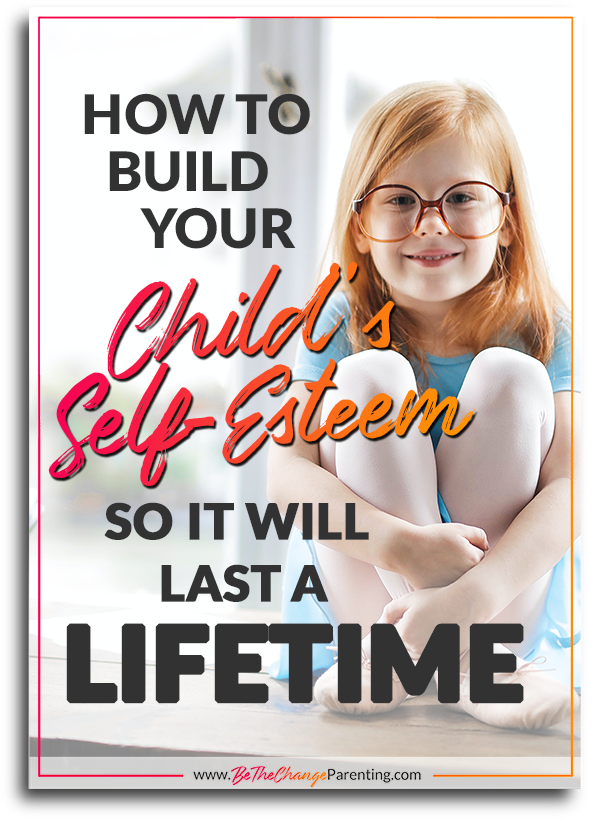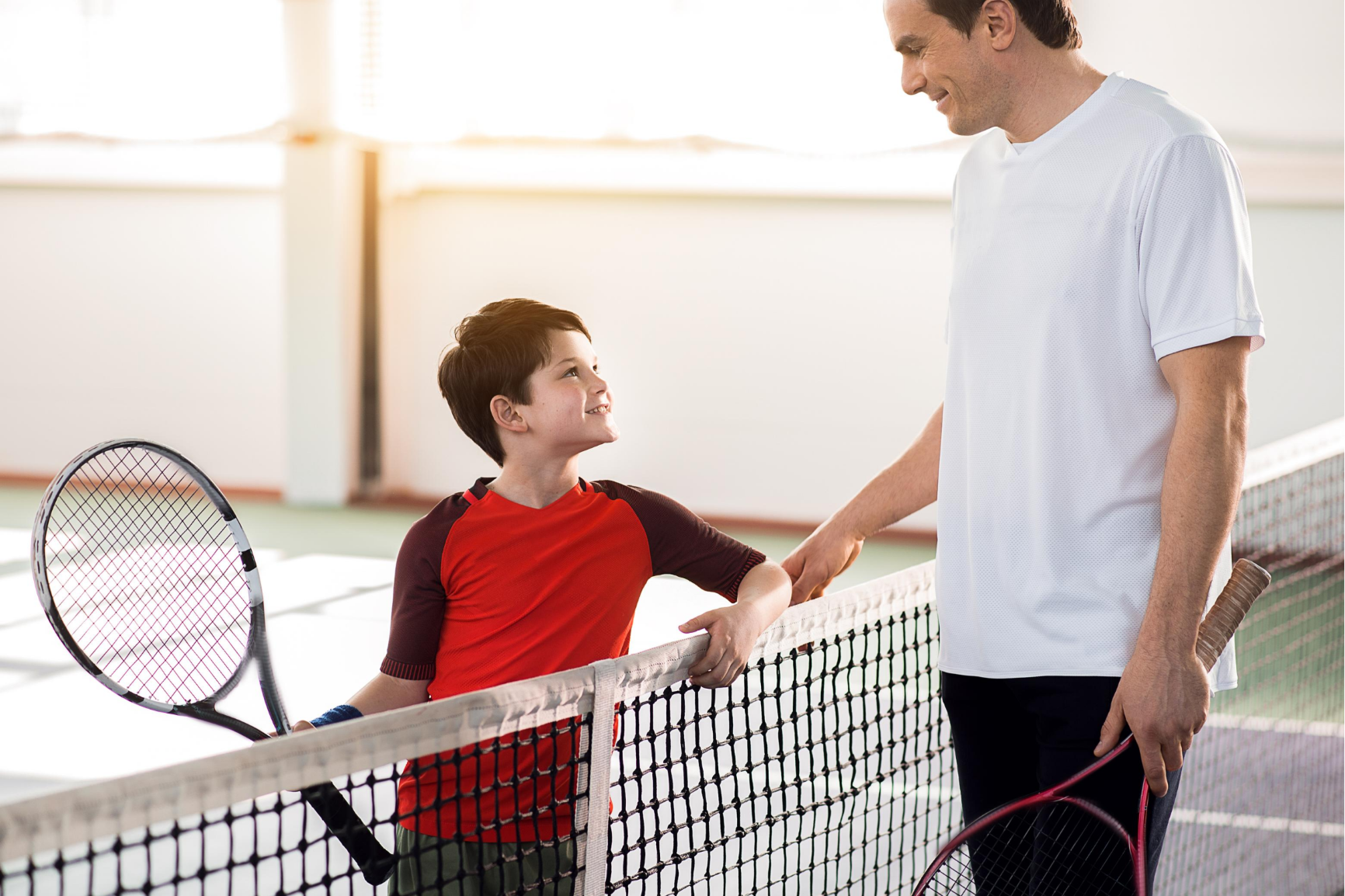
Building Self-Esteem in Children
that will last a lifetime
Building self-esteem in your children is one of the greatest gifts you can give them.
Kids with high self-esteem feel loved and capable and grow to be happy, productive and successful people. What greater gift can you give your child?
Building self-esteem in children is building the way they think about themselves. It’s building their confidence in their worth and abilities.
Your self-esteem is - simply put – your identity. It’s how your child will answer the question ‘who am I?’ or ‘who will I become?’ It’s how good he feels about himself – which is an oh so important – essential – mindset because knowing your inner strengths and good qualities enables you to use them again and again.
If you don’t think you have any good traits, qualities or talents, how will you have the confidence to go out there and use them?
Your Child’s Self-Esteem Creates the Quality of His or Her Life.
Why? Because to the extent that your child has a good positive self-esteem will he believe in his ability to use his talents and strengths – and create a beautiful life for himself.
Why is Self-Esteem Important in Child Development?
We’ve all had the experience of seeing teens, maybe you’ve seen them in the park, or maybe they’re your neighbor’s kids, who are lost. They dress like they’re so tough, they’re looking for mischief, and they have absolutely no aspirations.
Why is that? Why don’t they see themselves going off to a great college, starting a career, a family, creating a life for themselves?
Cuz they don’t see it in them. They don’t think they can achieve better or be someone great.
They lack self-worth or self-esteem.
Plainly put – if you want your child to believe in his value, his abilities, his greatness, his God given strengths – then self-esteem is oh so important to develop from a young age, and to keep it growing as he gets older.
Bob Cunningham writes in his article The Importance of Positive Self-Esteem for Kids that “Kids with positive self-esteem feel confident and capable. They value themselves and their abilities. They’re proud of the things they can do and want to try their best.
When kids are confident and secure about who they are, they’re more likely to have a growth mindset. That means they can motivate themselves to take on new challenges and cope with and learn from mistakes. They’re also more likely to stand up for themselves and ask for help when they need it.”
How Do You Build Self-Esteem in Children?
1. Praise Your Kids Appropriately
Point out your kids’ good deeds and strengths and praise them for their accomplishments. What people believe about themselves and their abilities and talents become a self-fulfilling prophesy. You have the ability to create your child’s sense of self – by what you say to them and repeat over and over again. They believe what you tell them about themselves and these beliefs go deep down and become their subconscious beliefs.
So make sure that what you’re saying every day isn’t that they’re ‘so lazy’ or ‘can’t do anything right’, but rather that they have ‘so much energy’ are ‘thoughtful’, ‘proactive’ and ‘kind’.
You have the incredible power to create your children’s subconscious mind beliefs about themselves – beliefs that will guide them to use their powers and talents throughout their life!
2. Don’t Praise Insincerely or Too Much
As Randi Chapnik Myers writes in her post 11 Tips of Building Self-Esteem in Children , over praising kids does more harm than good. She points out that ‘it’s like lowering the bar for them. If you keep telling your child she is already doing a fantastic job, you’re saying she no longer needs to push herself. But confidence comes from doing, from trying and failing and trying again - from practice. Either kids start thinking they’re perfect or they try to be perfect all the time – an impossible standard.’
As much as praise is important – it should be given in the right amounts, in the appropriate places.
3. Good Parental Self-Esteem
Of all the judgments we pass in life, none is as important as the one we pass on ourselves.
- Nethaniel Branden, Six Pillars of Self-Esteem
You want to see your kids grow up with a positive self-esteem – one of the biggest keys is for you – their parent – to have a good dose of positive self-esteem.
As Leon Seltzer says in his post How to Raise Your Kids with High and Healthy Self Esteem “the degree to which parents have resolved their own questions of personal self-esteem will have more influence on their children than anything they might attempt to teach them verbally.”
Cuz you and I both know that kids learn from what you do much more than what you say. Every child’s nature is to mimic what they see – and if you demonstrate by example how to deal with problems, conflict, stress, and do it in a way that shows that you have self-esteem – that you don’t put yourself down – but you keep your head up and recognize your own value even in difficult times – that will be the biggest teacher for your children.
You need to have self-esteem – in an authentic way – show your kids by incredible example that life is not going to bring you down – that you have the inner belief in yourself that you can overcome adversity – that you know that you are strong. This will breed kids who themselves have incredible positive self-esteem.
You know what I love to do when I’m feeling down? We go on a trip to somewhere fun – even just a hike to nature – and we play Fight Song in the car. Lifts my mood. And it shows my kids that I’m strong and I believe in myself!
4. Help Your Child Develop His Talents
For one child it will be academic achievement, for another acting or singing, another child is an incredible artist and yet another thrives in sports. And then there’s the kid who is the most popular socially!
A big part in building self-esteem in children is helping them discover their talents and strengths and helping them to shine.
Because when they see their successes – that in and of itself builds their self-esteem – their self-worth. They believe they can accomplish great things because they see what they’ve already accomplished.
Some kids naturally excel academically, some need a little bit of help and then they shine equally as much.
Some kids discover their talents at school on the ball field, some need some experimentation to get it just right.
Anything you can do to help your child to discover her strengths, to nurture them and become really great – and to shine! Do it. It’s worth every minute invested in the long run. The boost to your child’s self-esteem will be felt in all other areas of her life as well.
☞ If you like this post, you will love: How to Create a Safe Haven for Telling the Truth
5. Encourage Your Child to Be a Giver
No talent required here! Just kindness and giving. You know that really good feeling when you’ve done something to help someone else out – just for no reason at all? That’s the kind of feeling you want to help your kids get – and to get it time and again. Cuz when we do good we not only feel good – but we feel good about ourselves.
When I was a young teen, an older teen neighbor of mine inspired me to volunteer at the local hospital, which I did throughout my high school years. And you know what? I felt good about it. I was proud of my contribution. I walked around the hospital with the gift cart and went into room after room. I not only provided a service; I brought a smile to these (mostly older) patients faces.
If you can help your child become a giver – to have a giver mentality which they’ll use throughout their life – you have truly been the biggest giver.
Someone who gives of themselves on a consistent basis has an inner feeling of satisfaction, of pride in their accomplishments. This is the greatest gift of self-esteem you can help your child achieve.
☞ If you like this post, you will love: How to Talk So Your Kids LOVE to Listen
6. Let Kids Make Decisions & Take Risks
A big part of self-esteem is being confident in one’s abilities and choices. If you want your child to feel confident in his choices – you need to let him make them.
You know you and I are alike. We want our kids to be safe, happy, successful and be proud of themselves (in a humble way). Am I right?
Problem is with us parents (myself included) is that we’re so afraid for our kids to mess up and to have to suffer the consequences of their actions – that we often don’t allow them to take risks, and make their own decisions if they might turn out badly for them.
But that means we’re also robbing them of the opportunity to prove that they can make good choices and succeed.
Building self-esteem in children sometimes means:
· letting them make decisions at a younger age
· letting them choose how to spend their own money
· allowing them to stay out a little later
· choosing when, where and how to study
· allowing them more freedom to structure their free time
· giving them space to be young entrepreneurs
Will things always work out the way they want? No. Will they have to deal with the consequences sometimes? Yep. But that’s ok. Because the times that they are successful will most likely make up for any hardships.
And wait till you see the look on their faces when they’re successful at implementing their own plans! Totally worth the boost these times will most certainly have on their self-esteem!
☞ If you like this post, you will love: Positive Discipline: How to Get Mind Blowing Results
7. Teach That Mistakes are How We Learn
The other day I had one of the most incredible parenting moments. I dropped the ketchup and the cap broke - and the ketchup splattered across the kitchen.
My 8-year-old son came running over and said, ‘don’t worry, we’ll just clean it up’. And then my 6-year-old son chimed in and said, ‘it’s ok Mommy, it was just a mistake – and mistakes are how we learn!’
I can’t begin to tell you how dropping this ketchup made me smile!!!
I constantly tell my kids that making mistakes is how we learn – but hearing it coming from their own little mouths just made my day!!!
The key is to bring across this point when it’s not just ketchup!
Yes – let your kids make their own decisions and take some risks – but with that is the understanding that sometimes we make mistakes and that’s just part of life’s learning curve!
Tell your kids personal stories of times when you’ve made mistakes and how you picked yourself up afterwards and moved on. Tell them stories of when you learned from your mistakes and how they helped you in the future.
And of course, model good reactions when you yourself make mistakes. That it’s not the end of the world. That you’ll do better next time. That mistakes are all a part of life’s learning curve!
☞ If you like this post, you will love: How to Raise Problem Solvers Using the Power of Magic Words
8. Encourage Good Healthy Friendships
Kids don’t have to have tons of friends or be the most popular, but having one really good friend who accepts them for who they are can make all the difference in a child’s self-esteem.
Help your younger children set up play dates and make sure to have yummy snacks and fun things to do so the friends will want to come back.
Encourage your older kids to invite friends over and give them incentives – activities or food they’ll enjoy.
And make your children’s friends feel welcome! Even a part of the family! We’ve many a time invited a best friend along for a family outing or even for family photos!
I’ll stand there schmoozing with them in the kitchen sometimes or we’ll all play a game at the table together. Let them feel welcome and loved so they keep coming back – because you don’t only want your kids to have good friends – you want them to feel comfortable hanging out with them in their own home.
Keep your eyes and ears out to notice when friends might not be the right influence and use your wisdom to guide your kids to better friendships. I’ve personally experienced with my own kids how detrimental bad friendships can be for young impressionable minds…
Kids who don’t have friends feel like there’s something wrong with them – that nobody likes them, so try and encourage good healthy friendships. If your child needs social skills training, then see what you can do about helping them with that ASAP.
☞ If you like this post, you will love: 3 Tips to Help Your Child Develop Social Skills
9. Teach Your Child Self-Care Skills
We’re not just talking about brushing teeth and making the bed here. My kids start doing their own laundry from age 11. Why not? It’s not hard to press the button on the machine! I show them exactly how it’s done, what to put in the dryer and what not to. And they’ve already been folding and putting away their laundry together with me since they’re 7 – so that’s not a problem.
I’ve taught my kids (each at varying ages depending on their interest level) to bake and cook and do various household chores.
And when I’ve gone away, my teenage daughters were able to run the house, doing laundry, cooking dinner. And you know what? They feel so good about it! They feel knowledgeable and capable, and they feel like they’re contributing to the family.
I overheard my 16-year-old daughter laughing to her sister that her friend’s mother had gone away and nobody in the house had clean clothing cuz nobody knew how to do the laundry. She wasn’t laughing about her friend in a mean way, just in an I’ve-been-doing-my-own-laundry-since-I-was-11 kind of way.
And give them chores! Give them an opportunity to give back to the family, to be helpful because they value their family.
I can’t begin to tell you how giving my kids the ability, the know-how and the responsibility of taking care of their own needs and helping out with the family’s needs has given them pride in their abilities and their contribution. Truly self-esteem at its core.
When my oldest son went back to living with his dad a few years after our divorce, I asked him ‘so who does your laundry?’ (I knew that his dad doesn’t do laundry). He answered ‘Grandma does dad’s laundry, but I do my own’ – and I could hear the pride in his voice!
☞ If you like this post, you will love: Why I Don’t Pay My Kids To Do Chores
10. Be There Unconditionally with Love & Acceptance
I’ve written this one in as number ten but we all know that it’s really number 1. When you love your child and fully accept him as he is unconditionally – this love goes down to the depth of his core being.
This love becomes the voice inside his head that says ‘you are loving and capable’ every day of his life – and so he becomes a truly loving person who feels that he is capable of anything he puts his mind to.
This love becomes the force inside of him that knows that no matter what mistakes he’ll make he is always loved – and so he won’t be afraid to try and fail – because he’s loved anyway.
This love becomes the strength in his deep inner core that will keep him going when times are tough and give him hope to carry on – because this love is his strength.
The LOVE you give your child - is at its deepest core – the self-esteem that you are gifting your child.
Given with all your heart. And all your love.









































